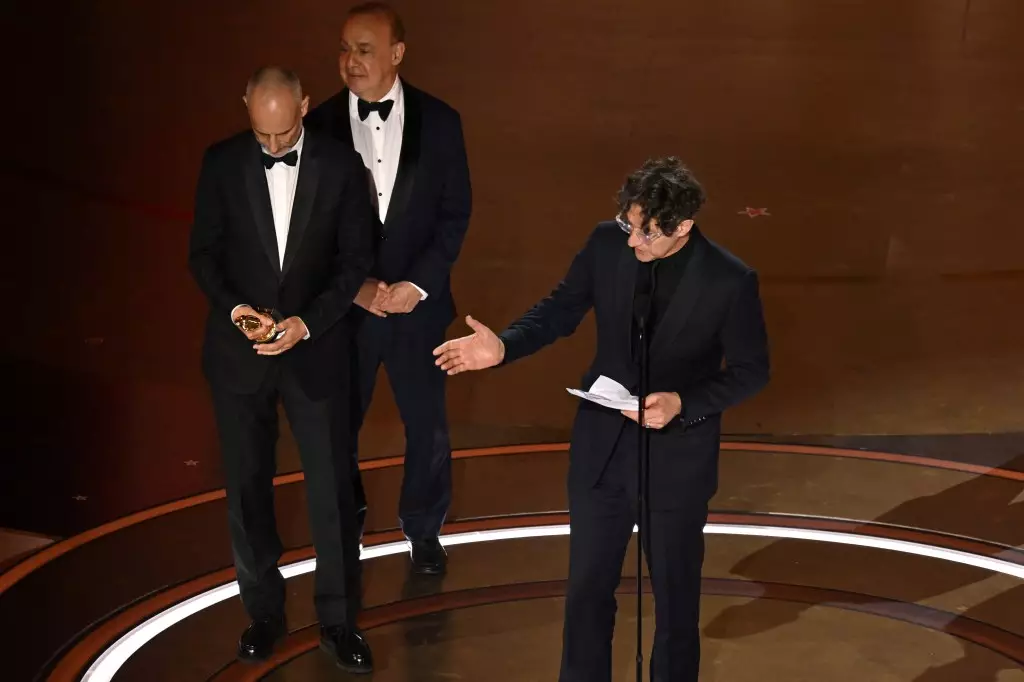Jonathan Glazer’s film, The Zone of Interest, has made waves in the film industry by winning the International Feature Oscar. The movie, based on the novel by Martin Amis, delves into the dark and challenging subject of the Holocaust. Set outside the walls of Auschwitz, the film follows the story of Auschwitz commandant Rudolf Höss and his wife Hedwig as they attempt to create a life for themselves amidst the horrors of the concentration camp. The film’s focus on the theme of dehumanization and its consequences is a poignant reflection on the present societal issues we face today.
Unlike traditional Holocaust films that rely heavily on graphic violence and suffering, The Zone of Interest takes a unique approach by subtly hinting at the atrocities happening on the other side of the wall. While this departure from the norm may be refreshing for some viewers, it also raises questions about the effectiveness of portraying such a sensitive subject matter in a more subdued manner. Can a film truly capture the horrors of the Holocaust without explicitly showing them?
Director Jonathan Glazer’s decision to focus on the psychological impact of dehumanization rather than graphic violence is both bold and controversial. By choosing to confront audiences with the consequences of dehumanization in a more subtle way, Glazer challenges viewers to reflect on their own actions and attitudes towards others in the present day. This approach forces us to consider the ways in which dehumanization still persists in our society and the dire consequences it can lead to.
Upon its premiere at Cannes and subsequent wins at the BAFTAs and the International Feature Oscar, The Zone of Interest has garnered critical acclaim and commercial success. Critics have praised Glazer for his thought-provoking and haunting portrayal of the Holocaust, with some even suggesting that the film may be among the greatest ever made on the subject. However, the film’s success also raises questions about the impact of historical fiction on our understanding of traumatic events like the Holocaust.
Jonathan Glazer’s film The Zone of Interest offers a fresh and thought-provoking perspective on the Holocaust. By eschewing traditional depictions of violence and suffering, Glazer challenges audiences to confront the lingering effects of dehumanization in our society today. While the film has been met with critical and commercial success, it also sparks important discussions about the ethics of portraying historical traumas on screen. Ultimately, The Zone of Interest serves as a poignant reminder of the importance of remembering and learning from the dark chapters of our past.

